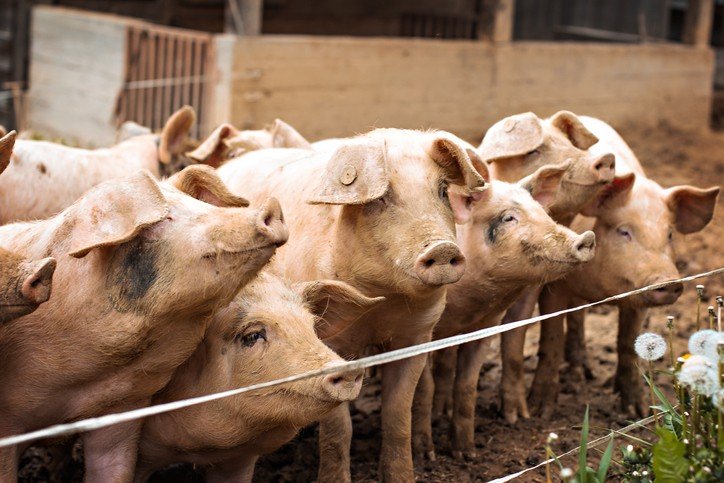Effective today (Thursday), the export of live pigs from Thailand is banned for three months, after the Commerce Ministry decided yesterday on measures to ease runaway pork prices in the domestic market, which are already over 200 baht/kg and rising.
Commerce Minister Jurin Laksanawisit, who chaired a meeting yesterday (Wednesday) of the Central Committee on Prices of Goods and Services, explained that the ban means that there will be about one million live pigs, slated for export this year, available for local consumption instead, in addition to the existing 13 million.
This is, however, a substantial drop from the normal 19 million due to deaths from diseases.
He also said that pig farmers who raise more than 500 pigs, wholesale traders who have more than 500 of the animals and cold storage facilities which store more than 5,000kgs of frozen pork will be required to report their live pig and pork stocks to the Internal Trade Department every seven days, as of Monday, so officials can have a rough idea of overall inventories.
As for pork prices, Jurin said that vendors nationally will be required to display pork prices, so that they can be checked by officials from the Internal Trade and Livestock Development, to ensure the selling prices do not exceed the prices set by the Internal Trade Department.
He warned that vendors found to be overpricing may face charges of profiteering.
The commerce minister said that pig farmers would, however, be fairly treated, pointing out that, if pig farming costs have increased, the ex-farm prices of live pigs should be allowed to increase accordingly.
To ensure sufficient pig stocks, both for local consumption and export in the future, the meeting yesterday assigned the Livestock Development Department to promote pig farming, through easier access to cheap loans or other incentives to be considered by the Finance Ministry.
The minister said pig farmers will be encouraged to join the Good Farming Management scheme, to increase the standards of Thai pigs and pork.




